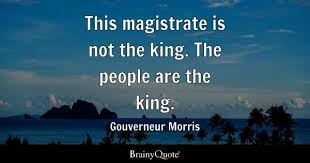In the fall of 1789 recently inaugurated President, George Washington called for a National day of Thanksgiving. Under the previous frame of government, the unworkable Articles of Confederation, such proclamations had customarily been sent to the governors of each state. However, Washington abandoned that practice. As the first US President, Washington instead issued the proclamation to the American People.
This President deliberately bypassed state governments.
The new Constitution, practically wet with ink, had been intentionally addressed to “We The People,” and Washington aimed through his administration to join every citizen, regardless of state, to the national government. This proclamation, seemingly banal, clearly signaled a dramatic reset of power in the new Republic.
Two years prior, in Philadelphia, the framers turned attention to composing a Preamble, otherwise understood as a mission statement. Preambles were not unusual, each state government began with them, but in that hot, humid chamber of Constitution Hall work commenced to define America’s mission. Gouverneur Morris, a delegate from New York, most probably authored the statement, and it was Morris who set out the language.
We the people of the United States, in order to form a more perfect union, establish justice, insure domestic tranquility, provide for the common defense, promote the general welfare, and secure the blessings of liberty to ourselves and our posterity, do ordain and establish this Constitution for the United States of America.
The heart of these guiding principles begin with the phrase “The People,” followed by the active verb, “To Form.”
The Preamble rests upon this infinitive clause, implying America is a work in constant progress. This mission is a founding legacy fixed upon enduring bedrock.
Susan B Anthony sought justice voting in the Election of 1872. Arrested for casting her ballot, Anthony faced a Federal judge, and received a verdict of guilty. The 19th Amendment, ratified nearly fifty years later extended the vote to women. Hounded by settlers from the 17th Century onward, Native Americans sought survival and the tranquility to peacefully co-exist with whites. It’s ironic that indigenous Americans were not citizens until 1924.The United States in 1860, teetered on a knife point of dissolution. President, Abraham Lincoln, could not stand by and watch democracy die under the threat of secession. Preparing for the common defense Lincoln mobilized northern forces to defend the Union. From Jane Addam’s Hull House, a Chicago settlement center for immigrants, promoting the general welfare, to Dred Scott, and Homer Plessy’s struggle to reap the blessings of liberty, each generation stood tall in their historic moments.
To honor the principles of the document, and as heirs of Constitutional law, our charge, like those before, is weightier than our private comfort. We The People have no choice but to continue Gouverneur Morris, and President Washington’s wishes To Form A More Perfect Union.
Modern America’s mini tyrants must not prevail. Make your voice heard at the ballot box on Tuesday, November 8, 2022.
Gail Chumbley is the author of the two-part memoir, “River of January,” and “River of January: Figure Eight.” Both titles are available on Kindle. Chumbley has written two historical plays, “Clay” regarding the life of Senator Henry Clay, and “Wolf By The Ears,” an exploring the roots of slavery and racism.
